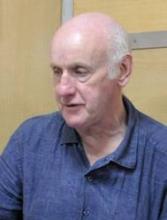A new app seems to help nonneurologist health care workers diagnose seizures as epileptic or nonepileptic, findings from a small study to be presented at the American Academy of Neurology meeting suggest.
The epilepsy app, which will be called Epilepsy Diagnosis when it becomes available, was created by neurologist Victor Patterson of Belfast, Northern Ireland, and built by a contracted company. He asked 67 patients at an epilepsy clinic in Nepal (51 of whom had epileptic seizures) 26 questions about their seizures and incorporated into the app the 11 most helpful questions and answers for predicting an epileptic seizure.
Nonphysician health care workers and a few physicians-in-training tested the app on 132 patients attending epilepsy clinics in Nepal and India. They either used the app before a formal diagnosis was made or were blinded to the patient’s clinical diagnosis.
The app was informative in 87% of cases (115 patients), and app results ultimately agreed with a physician’s diagnosis of epileptic or nonepileptic seizure in 97% of those cases (112 patients), according to Dr. Patterson. In addition to developing the app, he has been a visiting neurologist or teleneurologist for nonprofit international aid organizations or for hospitals in Nepal and Sudan, he said in an interview.
Using the app, health care providers were able to separate epileptic from nonepileptic seizures with "near-complete reliability," according to the abstract for his upcoming poster presentation on May 1 at the American Academy of Neurology annual meeting in Philadelphia. "Nondoctors were able to use it with minimal training."
Helping health care workers diagnose epileptic seizures could "save precious medical time," he said. "The diagnosis of episodes of altered consciousness as epileptic seizures is key to the management of epilepsy."
Neurologists typically distinguish an epileptic seizure from a nonepileptic one by taking a careful history of the attack both from the patient and an eyewitness and then use their medical knowledge to decide whether the episode is epileptic or not, Dr. Patterson said in an interview. The app uses what he considered to be the 11 most helpful questions in diagnosing Nepalese patients to take a history from the patient and an eyewitness. The app is programmed to analyze the answers and give a probability of the episode being epileptic.
"It’s the same process, with the app substituting for the neurologist," he said.
Primary care physicians, nurses, and other nonneurologist health care workers in more developed countries (like the United States) might be able to use the app in areas where neurologists are in short supply, but Dr. Patterson cautioned that the app was programmed based on the population in Nepal, which may be different from the U.S. population. For example, the rate of convulsive seizures or other conditions may differ between the two countries.
"I recommend physicians in different parts of the world to test this to see if it works for them," he said.
Health workers in resource-poor areas of the world will be able to get the app for free but a fee will be charged to physicians. Any profits will go toward more research into methods for "closing the epilepsy treatment gap," he added.
Dr. Patterson reported having no financial disclosures other than those disclosed above.
On Twitter @sherryboschert


